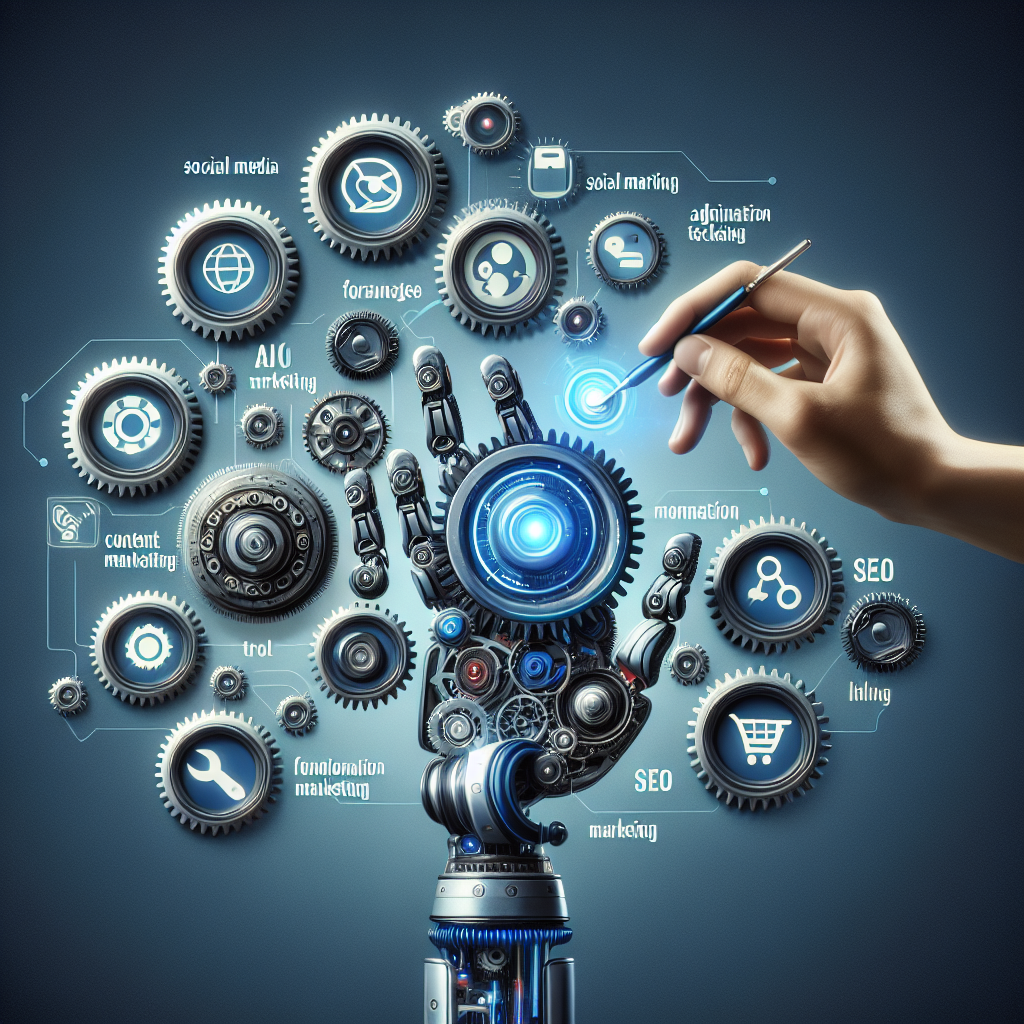Leveraging AI Automation for Marketing Success
In the rapidly evolving world of marketing, staying ahead of the curve is crucial for success. With the rise of artificial intelligence (AI) and automation, marketers now have powerful tools at their disposal to streamline their processes, improve efficiency, and drive better results. By leveraging AI automation, marketers can gain valuable insights, personalize their campaigns, and create more effective strategies to reach their target audience. In this article, we will explore the benefits of AI automation for marketing success and provide tips for how to effectively implement these tools into your marketing strategy.
Benefits of AI Automation for Marketing
1. Personalization: One of the key benefits of AI automation in marketing is the ability to personalize campaigns based on customer data and behavior. By using AI algorithms, marketers can analyze vast amounts of data to create targeted marketing messages that resonate with their audience. This level of personalization can lead to higher engagement rates, increased conversions, and improved customer satisfaction.
2. Increased efficiency: Automation tools can help marketers streamline their processes, saving time and resources. Tasks such as email marketing, social media scheduling, and content creation can be automated, allowing marketers to focus on more strategic initiatives. AI automation can also help marketers identify opportunities for optimization and improvement, leading to better overall performance.
3. Improved targeting: AI algorithms can analyze customer data to identify trends and patterns that can inform targeting strategies. By understanding customer preferences and behavior, marketers can create more targeted campaigns that are more likely to resonate with their audience. This can lead to higher conversion rates and improved ROI on marketing campaigns.
4. Real-time insights: AI automation tools can provide real-time insights into campaign performance, allowing marketers to make data-driven decisions on the fly. By monitoring key metrics such as click-through rates, conversion rates, and engagement levels, marketers can quickly identify areas for improvement and make adjustments to optimize their campaigns.
5. Scalability: AI automation tools can help marketers scale their efforts more effectively. By automating repetitive tasks and processes, marketers can reach a larger audience and drive more leads without increasing their workload. This scalability can help marketers grow their business and reach new markets more efficiently.
Tips for Implementing AI Automation in Marketing
1. Define your goals: Before implementing AI automation tools, it’s important to clearly define your marketing goals and objectives. Whether you’re looking to increase brand awareness, drive sales, or improve customer engagement, having a clear vision of what you want to achieve will help you choose the right tools and strategies to reach your goals.
2. Choose the right tools: There are a wide variety of AI automation tools available for marketers, so it’s important to choose the ones that best align with your goals and objectives. Whether you’re looking for tools to automate email marketing, social media scheduling, or content creation, make sure to research and compare different options to find the right fit for your needs.
3. Collect and analyze data: AI automation tools rely on data to make informed decisions, so it’s important to collect and analyze customer data to inform your marketing strategies. By tracking key metrics such as website traffic, conversion rates, and customer engagement, you can gain valuable insights into your audience and tailor your campaigns accordingly.
4. Test and optimize: Once you’ve implemented AI automation tools into your marketing strategy, it’s important to continuously test and optimize your campaigns to improve performance. By A/B testing different strategies, analyzing results, and making adjustments based on data-driven insights, you can ensure that your campaigns are as effective as possible.
5. Stay informed: The field of AI automation is constantly evolving, so it’s important to stay informed about the latest trends and developments in the industry. By staying up to date on new tools and technologies, you can continue to leverage AI automation to drive marketing success and stay ahead of the competition.
FAQs
Q: How can AI automation help improve customer engagement?
A: AI automation can help improve customer engagement by personalizing campaigns based on customer data and behavior. By analyzing customer preferences and behavior, marketers can create targeted marketing messages that resonate with their audience, leading to higher engagement rates and improved customer satisfaction.
Q: What are some common AI automation tools used in marketing?
A: Some common AI automation tools used in marketing include customer relationship management (CRM) systems, email marketing platforms, social media scheduling tools, and content creation tools. These tools can help marketers streamline their processes, improve efficiency, and drive better results.
Q: How can AI automation help marketers scale their efforts?
A: AI automation can help marketers scale their efforts by automating repetitive tasks and processes, allowing them to reach a larger audience and drive more leads without increasing their workload. This scalability can help marketers grow their business and reach new markets more efficiently.
Q: What are some key metrics that marketers should track when using AI automation tools?
A: Some key metrics that marketers should track when using AI automation tools include website traffic, conversion rates, click-through rates, engagement levels, and customer retention rates. By monitoring these metrics, marketers can gain valuable insights into campaign performance and make data-driven decisions to optimize their strategies.
In conclusion, AI automation presents a valuable opportunity for marketers to drive marketing success by streamlining processes, improving efficiency, and gaining valuable insights into customer behavior. By leveraging AI automation tools effectively, marketers can personalize campaigns, improve targeting, and drive better results. By following these tips and best practices, marketers can successfully implement AI automation into their marketing strategy and stay ahead of the competition.

